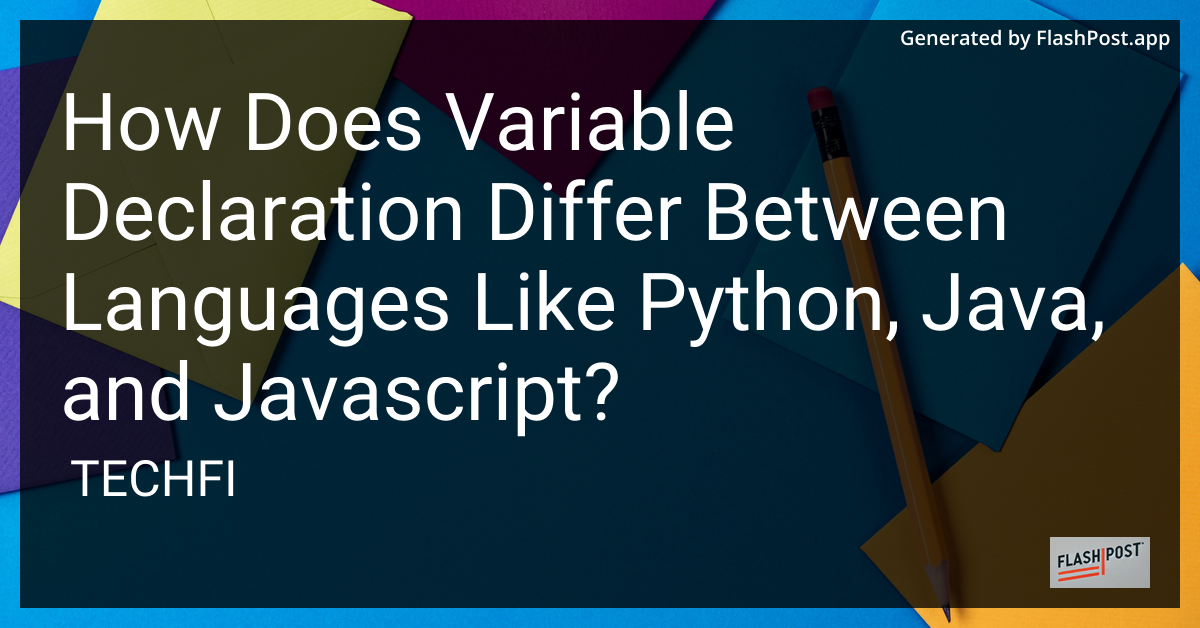How Does Variable Declaration Differ Between Languages Like Python, Java, and Javascript?

When diving into programming, one of the first concepts developers grapple with is variable declaration. Variables are fundamental, serving as placeholders for storing data. Despite their universality, the syntax and rules for declaring variables can be vastly different across programming languages. In this article, we will explore how variable declaration varies between three popular languages: Python, Java, and JavaScript.
Variable Declaration in Python
Python is renowned for its simplicity and readability, a philosophy that extends to its variable declaration process. In Python, variables are declared by simply assigning a value to them. There's no need to specify data types explicitly, as Python is dynamically typed, which means the interpreter infers the type based on the value assigned.
my_variable = 10
another_variable = "Hello, World!"
This flexibility allows for ease of use, albeit at the cost of potential runtime errors if types are misused.
Variable Declaration in Java
Java, a statically typed language, requires explicit declaration of variable types. Before using a variable, you must define its type in the declaration. This helps catch type-related errors at compile-time, enhancing stability.
// Java Variable Declaration
int myNumber = 10;
String greeting = "Hello, World!";
Java's stringent variable declaration enforces a disciplined approach to coding, which can be beneficial in large-scale applications.
Variable Declaration in JavaScript
JavaScript, widely used in web development, offers flexibility similar to Python. Recent versions, however, have introduced more structured variable declarations with let and const, in addition to var.
// JavaScript Variable Declarations
var oldVariable = "I can change";
let newVariable = 10;
const constantVariable = "I remain constant";
varis function-scoped and allows redeclarations.letis block-scoped, preventing redeclarations within the same scope.constis also block-scoped but is read-only after its initial assignment.
JavaScript’s versatility in variable declaration provides developers with multiple ways to declare variables based on their needs.
Conclusion
Understanding the differences in variable declaration across Python, Java, and JavaScript is crucial for developers, especially when transitioning between languages. Python offers a simple and flexible declaration process, Java enforces strict type safety, and JavaScript provides a blend of flexibility and structure.
For those interested in expanding their knowledge on variable declaration, explore these informative resources: – Laravel variable declaration – CodeIgniter variable declaration – JavaScript variable declaration – Haskell variable declaration – PHP variable declaration
Mastering variable declaration across different programming languages can significantly enhance a developer's versatility and capability in the software development landscape. ```